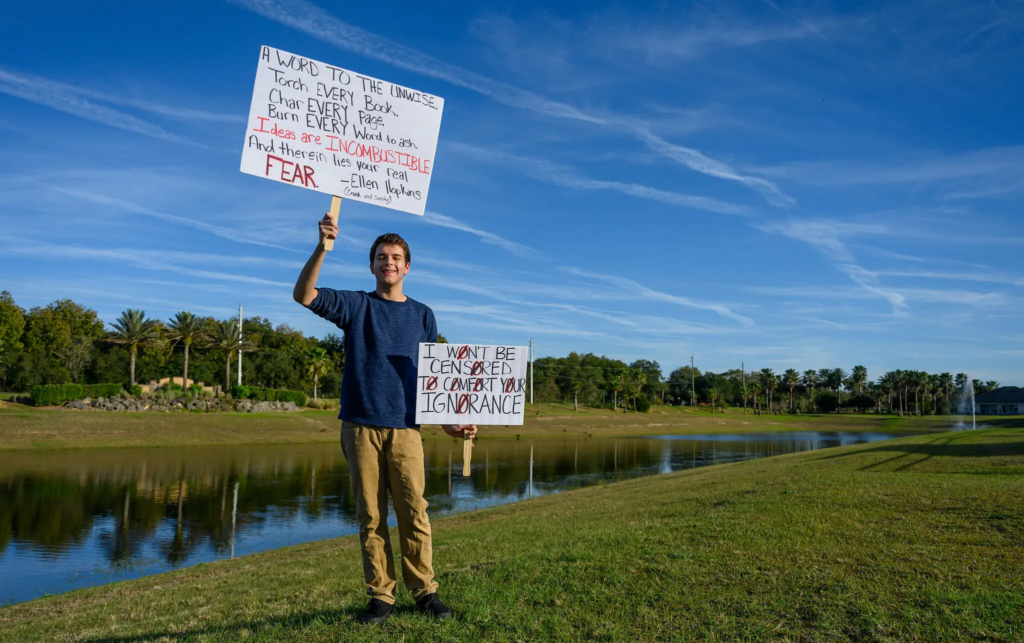The issue of book bans has been controversial throughout history due to events and topics that sparked controversy. Most often, these bans are due to disagreements over whether the content is appropriate, accurate, or may cause harm. One example would be my favorite book series, The Hunger Games (2008-2010) by Suzanne Collins. Several schools and libraries have banned and challenged this dystopian series due to its violence, profanity, and perceived negative themes. While critics argue that the books promote anarchy and rebellion, supporters claim that they offer thought-provoking analysis of society, power, and war’s consequences.
The controversy surrounding book bans has its origins in the desire to control access to information and ideas. Throughout history, various groups and authorities have sought to ban books that they deemed controversial and offensive. The earliest recorded instances of book banning can be traced back to ancient civilizations such as the Roman Empire and the Chinese dynasties, where rulers censored works that challenged their authority or promoted disagreeing views. In more recent history, book bans have been associated with religious censorship, political ideologies, and moral concerns. The banning of books has often sparked debates about freedom of speech, intellectual freedom, and the right to access diverse perspectives. This ongoing controversy reflects the tension between the protection of societal values and the preservation of individual liberties.
As a result of the controversy surrounding book bans in the US, various persuasion tactics and propaganda have been used to advance different viewpoints. Often, advocates of book bans use exaggerated language to fuel fear about the content of certain books, portraying them as harmful or inappropriate for certain audiences. This fear-based approach aims to sway public opinion by playing on parental concerns about their children’s well-being. On the other hand, those opposed to book bans often use tactics such as protesting censorship and infringement on freedom of speech, appealing to democratic principles. In addition, they may emphasize the educational and intellectual value of diverse perspectives found in literature by appealing to their emotional side.

As found in the New York Times article cited above, 17-year old Jack Petocz protested against a new book ban, claiming that it was “discriminatory and harmful to students.”
The controversy surrounding book bans has been a long battle and is not fully resolved. While there have been ongoing discussions and legal battles regarding the banning of certain books in schools and libraries, there is no definitive resolution to the issue as it continues to be a topic of debate. The controversy surrounding book bans persists due to the public debate efforts on both sides of the issue. Supporters of book bans often argue that certain materials are inappropriate for certain age groups or contain content that goes against their beliefs or values. However, opponents of book bans emphasize the importance of intellectual freedom, diversity of perspectives, and the right for individuals to make their own choices about reading materials. This ongoing debate contributes to the lack of a definitive resolution. In addition Educators, librarians, and advocates continue to work to provide resources and information about the value of open access to literature while also addressing concerns about age-appropriate content and parental involvement in guiding children’s reading choices.
Leave a Reply